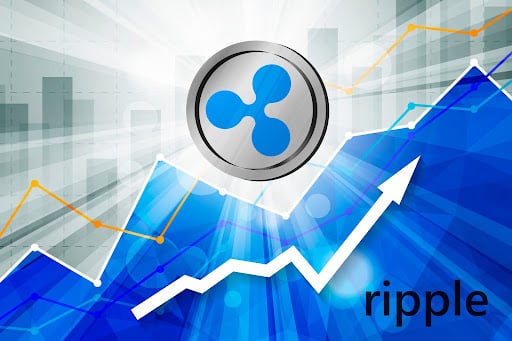- Ripple secures a legal victory against the SEC, boosting its reputation in the crypto world.
- Leading banks, including HSBC and Volante, form alliances to leverage Ripple’s blockchain technology.
Banks Forge Strategic Ties with Ripple Amid SEC Legal Triumph
Ripple, the blockchain-based fintech firm, has witnessed a surge in its reputation following a significant legal victory against the Securities and Exchange Commission (SEC). The court’s ruling that XRP sales to retail customers do not constitute securities has created a ripple effect in the financial sector. While institutional sales still face regulatory scrutiny, more companies are lining up to partner with Ripple to harness its blockchain network’s potential.
Despite a settlement offer, #Ripple is heading to the Supreme Court with unshakable confidence!
“No chance they’d win that!”
Trillion-dollar partners like #HSBC, Standard Chartered, and more trust #XRP tech!
Get ready for a massive price pump!
Your bags are… pic.twitter.com/ZRUVCGGcc4
— Collin Brown (@CollinBrownXRP) November 10, 2023
HSBC’s Digital Asset Custody Service
HSBC, one of the world’s largest financial institutions, has announced a partnership with Ripple-owned company Metaco. Although not a direct collaboration with Ripple, HSBC plans to launch a digital asset custody service for its institutional clients in 2024, with Metaco providing the necessary storage solutions. This move highlights the increasing adoption of blockchain technology in the traditional banking sector.
Volante’s Integration with Ripple
Volante, another prominent financial platform, is integrating Ripple’s real-time payment network to enhance its payment ecosystem. The integration offers various advantages, including real-time and instant payments, ISO 20022 messaging, open banking, APIs, next-gen cross-border capabilities, and blockchain/DLT functionalities. This strategic alliance demonstrates Ripple’s influence in transforming traditional financial systems.
Standard Chartered’s Investment in Ripple
Standard Chartered, a global banking giant, made a strategic investment in Ripple back in September 2016. This investment aimed to accelerate the bank’s digitization efforts in the distributed ledger technology space. Ripple’s partnerships extend beyond these banks, including Bank of America, PNC Bank, Santander Bank, Thailand’s Siam Commercial Bank, and Mexico’s Cuallix, strengthening its position in the global financial landscape.
As the legal battle with the SEC unfolds, Ripple’s CEO, Brad Garlinghouse, remains resolute. He recently announced his firm’s intention to take the case to the Supreme Court, despite a previous offer to settle out of court. Ripple’s victory in the legal battle has lifted XRP’s value, with a 35% increase in just one month, further solidifying its position in the cryptocurrency market.
In conclusion, Ripple’s triumph over the SEC and its growing list of partnerships with top banks signal a turning point in the blockchain industry. As Ripple’s technology continues to gain traction, it has the potential to reshape the future of financial transactions and cross-border payments, making it a key player in the evolution of the global financial landscape.


























